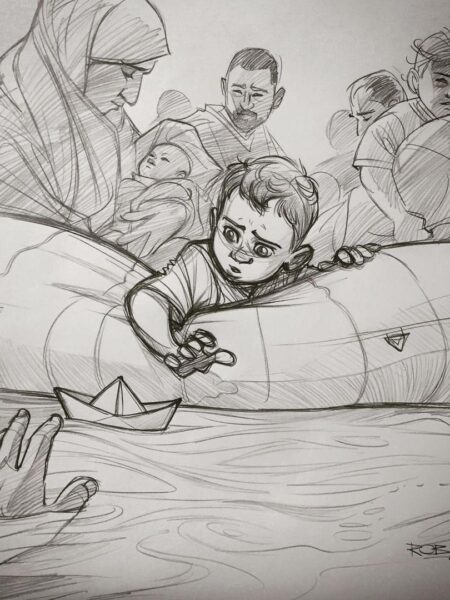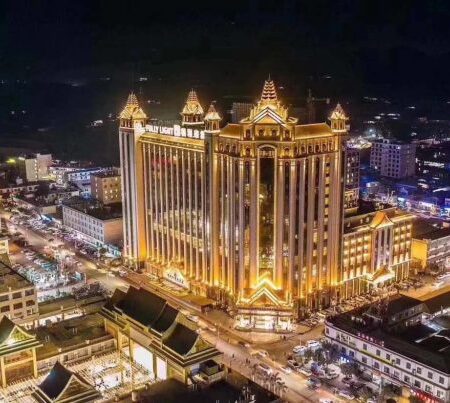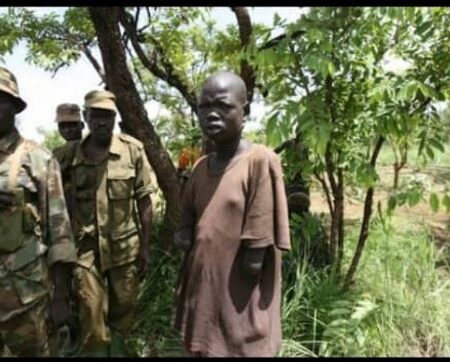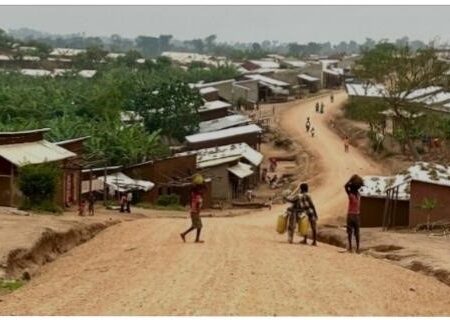Introduction
The history of Nigeria cannot be fully understood without mentioning the war which ended about fifty years ago. The Nigerian Civil War which lasted between 1967-1970,to the youths born in this generation, who make up a major part of Nigeria’s estimated population which is about 200 million the war may be another event in the calendar yet to the older generation who witnessed the war,especially the thousands of Easterners(The Biafrans) who were directly affected by the war,the war still remains an emotional topic to them. in Nigerian history books but for those whose families lived through it,the war is known as The Biafran Genocide.
It is important to note that history as a subject was taken away from the secondary school’s curriculum in 2007,the subsequent result of this is the Nigerian Government began to tell its own story of the Biafran war and thus preventing the new generation the opportunity to truly learn about the war. In my research I intend to focus on the Nigerian civil and how the different generations in Nigeria interpret the war.
The Nigerian Civil War.
The war,which broke out in the Southeast part of Nigeria between 6 July 1967 to 15 January 1970 is known as the first modern war in Sub-Saharan Africa after independence. The fundamental causes of the war were complex. For instance, at the time of independence in 1960,Nigeria was made up of different religious, economic,cultural and ethnolinguistic groups that were governed as semi-autonomous regions,and this automatically caused a lot of friction between these groups especially over the control of the government. Furthermore,under the colonial rule,Nigeria was a federation of three regions: Northern, Western and Eastern each populated mainly by three distinct groups:Hausa,Yoruba and Igbo respectively,the northern region being predominantly Muslim while the Eastern and Western were mainly Christians. All these affected the foundation of Nigeria and the British never preached unity among the ethnic groups and so a war broke out. On May 30,1967, Biafra(the Eastern part) declared itself an independent state and as a response to this declaration,the Federal government (headed by Gen.Yakubu Gowon) declared the act of session illegal. On July 6,1967 the federal troops invaded the Eastern region with the Northern armies of the ruling power attacking the Biafra and pushing the people into a small enclave where food inflows were cut off.
The war ended on January 15,1970 with the defeat of Biafra,due to the bloody nature of the war about 1 to 3 million lives were lost. In addition, the level of starvation in Biafra were three times higher than the starvation reported during World War II, there was widespread malnutrition and devastation among adults and children.


Interpretations of the war based on the different generations.
Different generations may interpret the Nigerian civil war, varying based on their experiences, historical context, and access to information, in my research I found that there are actually three different generations with regards to the interpretation of the Nigerian Civil War, namely: The War Generation, The Post-War Generation and The Younger Generation.
The War Generation is the generation that lived through the war and have direct personal experiences and memories of the conflict. Their interpretations of the war are influenced by factors such as loss, trauma, and the social, economic, and political impact it had on their lives. Majority of them, especially the ones that were affected by the war may see it as a tragic and devastating event that caused significant suffering and loss of life and most times will not want to talk about it. In my research I conducted an interview with a neighbor of mine, who is from the war generation. The war broke out when he was around 8 years old, and when I asked him about the war he was moved to tears, but he could not remember many details of the war due to his very old age and also due to the fact that he was very young when the war broke out, However,he remembered and felt the loss he suffered from the war and the bloodshed. He mentioned that he lost one of his close friends at the very young age, although I could not gather much from the interview because of the interviewee’s memory which is fading, I gathered that he did not want to talk about it.
The second generation, the Post-War Generation,includes those individuals born after the war. They did not experience the war firsthand, but they have grown up in Nigeria that was and is still struggling to come to terms with the conflict. They may have heard stories about the war from their parents or grandparents, but they may not fully understand the impact that the war had on Nigeria. Furthermore,their understanding of the war is often shaped by the official narrative, which tends to focus on the military aspects of the conflict and majority of them view it as a historical event with implications for national unity and the challenges faced during Nigeria’s post-war reconstruction.
The third generation is the Younger Generation, born in the digital age. This younger generation, growing up with abundant information at their fingertips, may have a more varied and comprehensive understanding of the Nigerian Civil War. Their interpretation could be influenced by a desire for balanced viewpoints and a nuanced understanding of the conflict’s causes, consequences, and lessons for the present and future. In addition, through my interviews and research I gathered that the younger generation can be divided into three subgroups: there is the group that actually make use of this information and go the extra mile to have their own personal interpretation of the war, there is also the group that just believes whatever is passed down to them by the middle generation and makes no use of the information they get, they base their interpretations off the information gotten from their parents, peers,etc, while the last subgroup consists of people who are nonchalant, they believe historical events is the business of only historians and it is not their business and this is the sad reality of many youths in Nigeria today, as earlier stated in my introduction, the Nigerian government removed history as a subject from the curriculum in secondary schools, as a result of this, many youths have no form of interpretation of the Nigerian Civil War, except those who take their time to actually read about it and create their own opinion of the war. The general interpretation of the war is that the Igbos are the victims and the federal government is the villain, this is an interpretation that is passed on from the older generation to the middle generation, who then passed it to the younger generation but there are youths who take this time to go the extra mile and create their own interpretation by researching and reading about the war, while some just accept what is passed down to them without questioning, and there are others who do not care at all and have no interpretation of what the war entails.
Conclusion
The different generations of Nigerians have different understandings of the Nigerian Civil War, and these understandings can sometimes be in conflict. The War Generation may feel that the Post-War generation does not understand the full cost of the war, while the post-war generation may feel that the war generation is too traumatized by the war to talk about it. The Younger Generation may be more interested in the political and historical aspects of the war than the personal experiences of those who lived through it.
It is important to recognize that there is no single, “correct” way to understand the Nigerian Civil War. Each generation has its own unique perspective, and these perspectives are all valid. By listening to each other and sharing our different experiences, we can come to a better understanding of this complex and tragic event. In addition to the three generations mentioned above, there is also a growing number of Nigerians who are interested in learning about the war from a historical perspective. These Nigerians may be from any generation, but they are united by a desire to understand the war and its legacy.
References:
– Akresh Richard.Bhalotra Sonia. Leone Marinella. Una Osile. “First and second generation impact of the Biafran War”. August,2017. Institute Of labor Economics. Instituted by Deutsche Post Foundation.
– Iniobong Iwok. January 19,2020. ” Nigeria 50 years after the Civil War”. Published by Business Day.
– Ilo Innocent Chizaram. 30 May,2020. “Remembering My Father’s Biafra; The politics of erasing history”. Published by Aljazeera.
https://www.aljazeera.com/opinions/2020/5/30/remembering-my-fathers-biafra-the-politics-of-erasing-history-2
– Offor Elias. 2023. ” The Nigerian Civil War should be remembered as Unity Day”. Published by The Guardian.
– Popescu Alexandra. 2019. “A brief history of generation – defining the concept of generation,An analysis of literature review”. Journal of Comparative Research in Anthropology and Sociology. Volume 10, Number 2.
https://www.proquest.com/openview/4abf601f3e67b457c61f2beecc792add/1?pq-origsite=gscholar&cbl=1396369
– Oral interview conducted with Obidoyin Damilola, a student of University of Ibadan, from the department of European Studies(French) on June 12, 2023.
– Oral interview conducted with Emmanuel Uko, a graduate of Computer Science at the University of Ibadan and an entrepreneur, on July 8, 2023.



